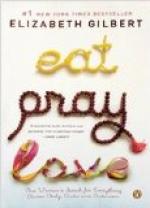“No! No! No!” almost shouted the company with one voice; and perhaps there was something so fascinating in the manner of the distinguished Hindu which exorcised all weariness from their minds and bodies.
“Thank you with all my heart; but really you must permit me to retire, for I am somewhat fatigued, if you are not, and I shall be happy to contribute to your entertainment at another time,” replied the speaker; and he retired from the platform.
“I shall next call upon Mr. Woolridge, who will speak to you of the fauna of India,” said the commander.
The magnate of the Fifth Avenue, not much accustomed to speaking in public, was somewhat diffident about addressing the company in the presence of those who were so well versed in Indian lore; but he conquered his modesty, and took his place on the stand. In expressing his appreciation of the last speaker, he mentioned that he occupied a difficult position in the presence of those who knew India as they knew their alphabet, and begged them to consider his talk as addressed only to the Americans of the party. The guests declared that they should be very glad to hear him; and he bowed, smiled, and proceeded with his remarks:—
“Fortunately I have not much to say, for it will consist mainly of the mention of the names of the principal animals in the fauna of India,” he began.
“Are all the animals fawns?” asked Mrs. Blossom, who evidently mistook the meaning of the term used.
“No, madam; some of them are snakes. But I shall refer the serpents to Sir Modava; for I am very anxious to hear the views of a native on that subject. The cattle are cows, buffaloes, and oxen, the two latter used as draft animals, and as agricultural workers. Bulls and cows are sacred beasts, and the Hindus never kill them for food.”
“Except Christianized natives, like myself,” interpolated Sir Modava.
“Thank you. The native breeds of horses have been greatly improved under the direction of the horse-fancying Briton; but they are never used on the farm. Ponies, donkeys, and mules are in use for various purposes. There are plenty of sheep and goats—so there are of hogs; but the higher of the middle class, like the Jews, regard them as unclean beasts, and would as soon take poison as eat the flesh of a pig. I don’t sympathize with them, for I like roast pork when it is well brought up and kept clean.
“Monkeys are as tame as they are mischievous; and doubtless they are tame because they are held to be sacred, and have a better time than they do in Africa and elsewhere. But all the fun of the fauna is concentrated in the wild animals, such as the tiger (about the gamiest ‘critter’ that exists), the panther, cheetah, boar, bear, elephant, and rhinoceros. Two kinds of crocodiles (not alligators) live in the mud and water of the rivers; and I suppose they snap up a man or woman when they get a chance, as they do in the Philippine Islands and other countries. I advise you all to give them a wide berth; for their bite is worse than their bark, like that of some men we know of.




